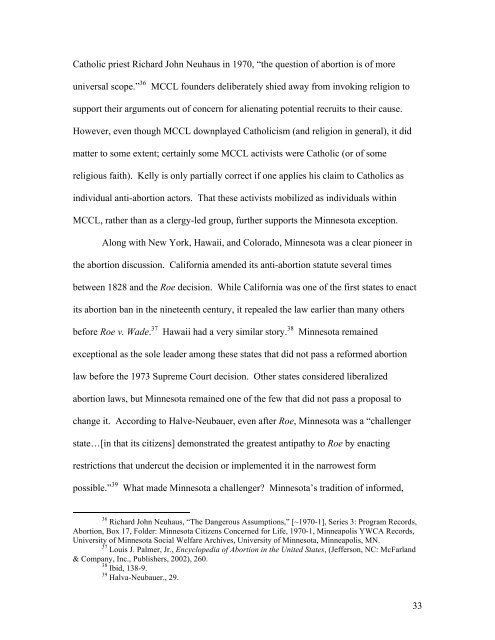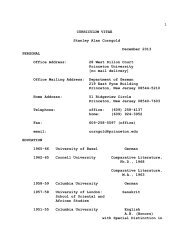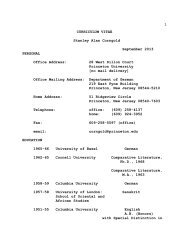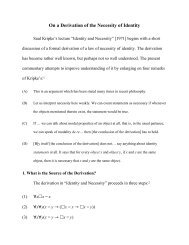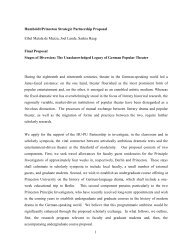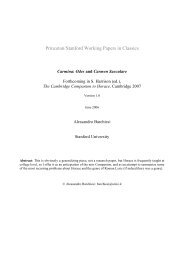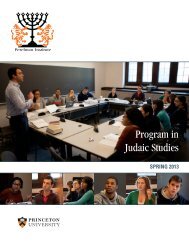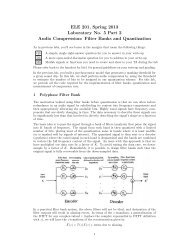The Pre-Roe Pro-Life Movement in Minnesota and New York
The Pre-Roe Pro-Life Movement in Minnesota and New York
The Pre-Roe Pro-Life Movement in Minnesota and New York
You also want an ePaper? Increase the reach of your titles
YUMPU automatically turns print PDFs into web optimized ePapers that Google loves.
Catholic priest Richard John Neuhaus <strong>in</strong> 1970, “the question of abortion is of more<br />
universal scope.” 36<br />
MCCL founders deliberately shied away from <strong>in</strong>vok<strong>in</strong>g religion to<br />
support their arguments out of concern for alienat<strong>in</strong>g potential recruits to their cause.<br />
However, even though MCCL downplayed Catholicism (<strong>and</strong> religion <strong>in</strong> general), it did<br />
matter to some extent; certa<strong>in</strong>ly some MCCL activists were Catholic (or of some<br />
religious faith). Kelly is only partially correct if one applies his claim to Catholics as<br />
<strong>in</strong>dividual anti-abortion actors. That these activists mobilized as <strong>in</strong>dividuals with<strong>in</strong><br />
MCCL, rather than as a clergy-led group, further supports the M<strong>in</strong>nesota exception.<br />
Along with <strong>New</strong> <strong>York</strong>, Hawaii, <strong>and</strong> Colorado, M<strong>in</strong>nesota was a clear pioneer <strong>in</strong><br />
the abortion discussion. California amended its anti-abortion statute several times<br />
between 1828 <strong>and</strong> the <strong>Roe</strong> decision. While California was one of the first states to enact<br />
its abortion ban <strong>in</strong> the n<strong>in</strong>eteenth century, it repealed the law earlier than many others<br />
before <strong>Roe</strong> v. Wade. 37<br />
Hawaii had a very similar story. 38 M<strong>in</strong>nesota rema<strong>in</strong>ed<br />
exceptional as the sole leader among these states that did not pass a reformed abortion<br />
law before the 1973 Supreme Court decision. Other states considered liberalized<br />
abortion laws, but M<strong>in</strong>nesota rema<strong>in</strong>ed one of the few that did not pass a proposal to<br />
change it. Accord<strong>in</strong>g to Halve-Neubauer, even after <strong>Roe</strong>, M<strong>in</strong>nesota was a “challenger<br />
state…[<strong>in</strong> that its citizens] demonstrated the greatest antipathy to <strong>Roe</strong> by enact<strong>in</strong>g<br />
restrictions that undercut the decision or implemented it <strong>in</strong> the narrowest form<br />
possible.” 39 What made M<strong>in</strong>nesota a challenger? M<strong>in</strong>nesota’s tradition of <strong>in</strong>formed,<br />
36 Richard John Neuhaus, “<strong>The</strong> Dangerous Assumptions,” [~1970-1], Series 3: <strong>Pro</strong>gram Records,<br />
Abortion, Box 17, Folder: M<strong>in</strong>nesota Citizens Concerned for <strong>Life</strong>, 1970-1, M<strong>in</strong>neapolis YWCA Records,<br />
University of M<strong>in</strong>nesota Social Welfare Archives, University of M<strong>in</strong>nesota, M<strong>in</strong>neapolis, MN.<br />
37 Louis J. Palmer, Jr., Encyclopedia of Abortion <strong>in</strong> the United States, (Jefferson, NC: McFarl<strong>and</strong><br />
& Company, Inc., Publishers, 2002), 260.<br />
38 Ibid, 138-9.<br />
39 Halva-Neubauer., 29.<br />
33


